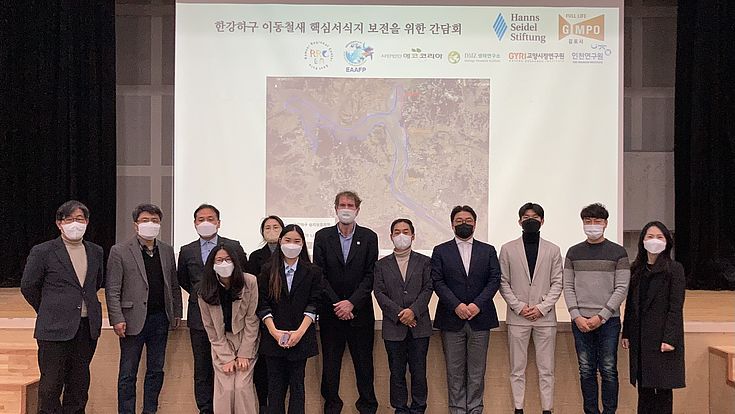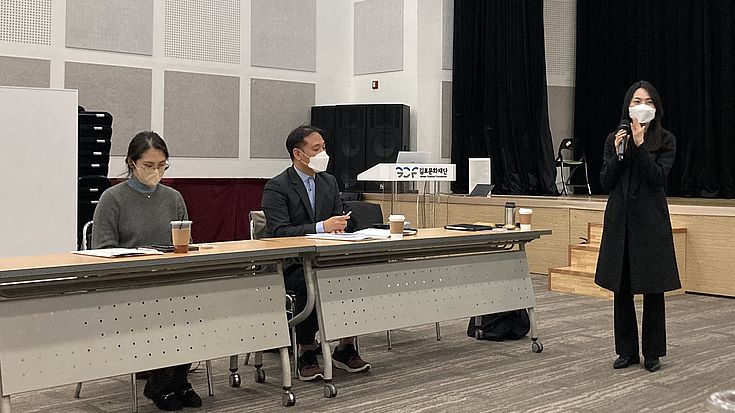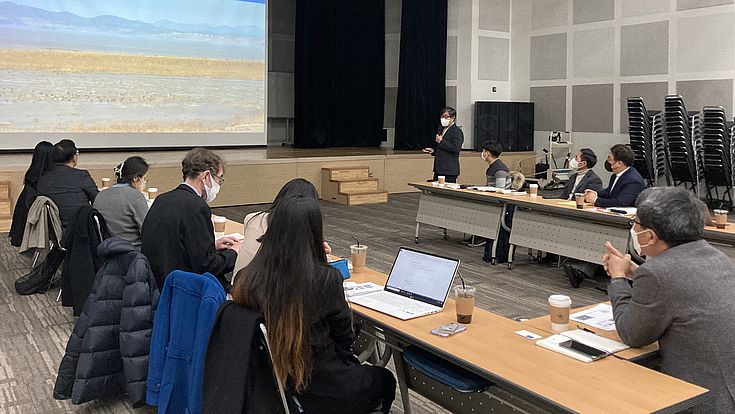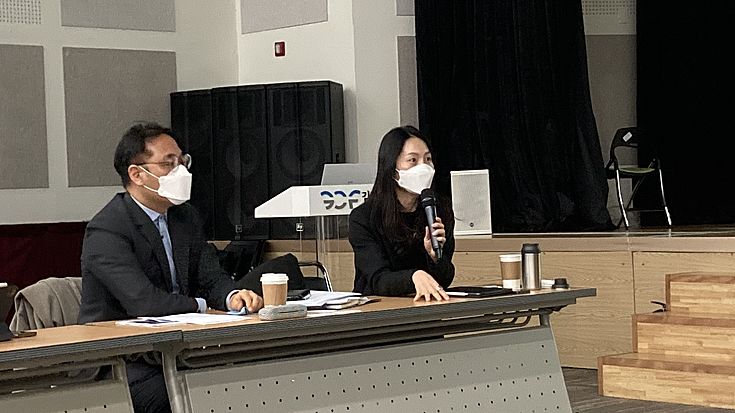Roundtable
Roundtable on Nature Conservation along the Han River Estuary

On December 2 2021, Hanns Seidel Foundation Korea hosted a roundtable event titled “Conservation of Migratory Birds and Their Habitats along the Han River Estuary” at Art Center, Gimpo Art Village. The venue was supported by Gimpo City, and partnered organizations such as East Asian-Australasian Flyway Partnership (EAAFP), Ramsar Regional Center-East Asia, PGA Eco & Bio Diversity Institute, DMZ Ecology Research Institute, Goyang Research Institute, Incheon Research Institute, and Gimpo City gathered to exchange practical measures for inter-Korean ecological cooperation with central and local stakeholders along the Han River estuary.

The roundtable was divided into two major sessions; the first session was mainly focused on each institution’s presentation on ways to improve inter-Korean ecological cooperation with central and local stakeholders regarding the wetland preservation of the Han River estuary. Especially, presenters suggested that both ROK and DPRK could work on designating transboundary wetlands of the Han River estuary as Ramsar sites. Based on this approach, further establishment of a joint management organization for transboundary wetlands could be facilitated for the sustainable and systematic preservation of habitats for migratory birds in the Korean Peninsula. Also, “soft” inter-Korean cooperative measures could be encouraged through practicing joint monitoring activities of migratory birds and sharing local data between ROK and DRPK.

The second session tackled potential challenges in terms of inter-Korean ecological cooperation. The presenters were concerned that the COVID-19 pandemic has become the main obstacle that hinders inter-Korean joint activities. Furthermore, the importance of the buffer state’s role in the facilitation of inter-Korean conversation was emphasized. Above all, the participants consented that domestic agreement among local communities regarding the designation of Ramsar sites should be primarily achieved to proceed with the inter-Korean cooperation for sustainable development.

Overall, all the participants agreed on the point that sustainable support measures through CEPA activities, funds, regional and international forums, facilitation of international NGOs, and local government’s integrative network process could raise North Korea’s awareness towards the wetlands of the Han River Estuary and pave ways for more open conversations between ROK and DPRK in terms of wetland preservation for migratory birds in the Korean Peninsula. Based on the successful discussions throughout the event, HSF Korea and the local officers and experts from civil society and research institutes are willing to put further collaborative efforts for inter-Korean cooperation. To check more details, you can access the newspaper articles (Korean only) below.
